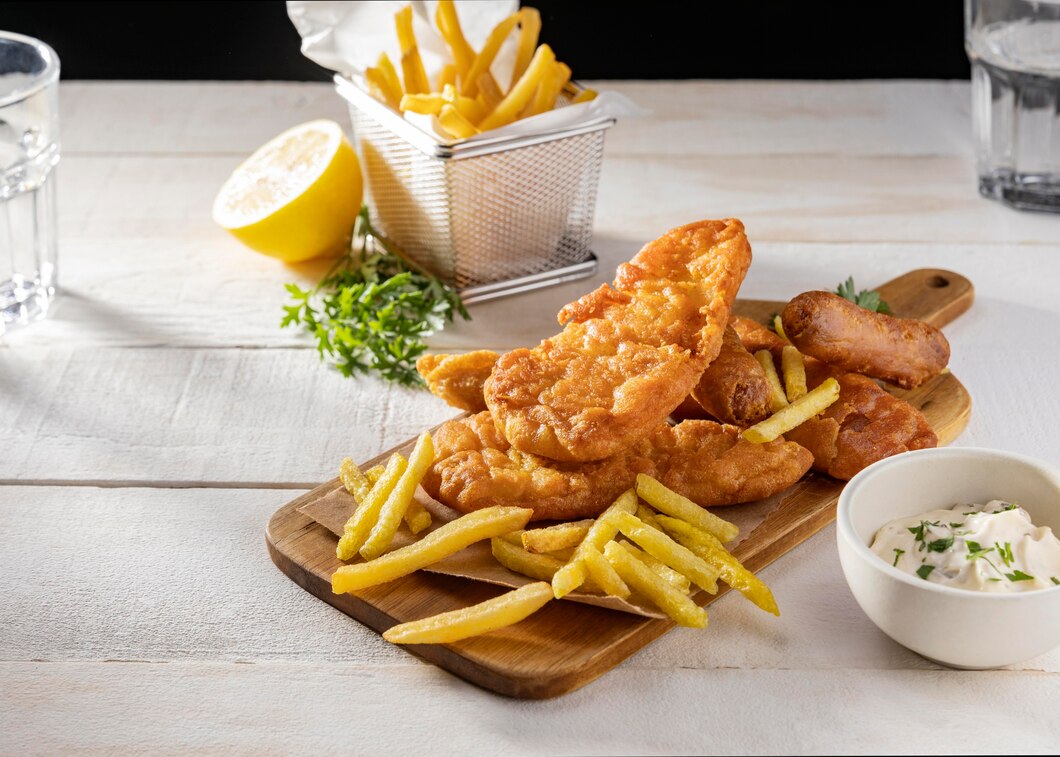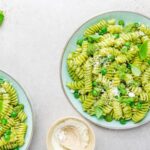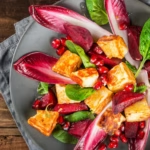Trans fats, also known as trans fatty acids, are a type of unhealthy fat that can increase your risk of heart disease, stroke, and other serious health conditions. These fats are often found in processed foods and are particularly dangerous because they raise bad cholesterol (LDL) levels while lowering good cholesterol (HDL) levels. For South Africans who are conscious of their health, it’s important to know which foods to avoid to minimize trans fat intake. Here’s a list of 20 foods that are high in trans fats and should be avoided or consumed with caution.
1. Fried Fast Foods
Fast foods like fried chicken, fish, and French fries are often cooked in oils that contain trans fats. These foods are a staple in many South Africans’ diets but should be limited due to their high trans fat content.
2. Baked Goods
Pastries, doughnuts, muffins, and cakes often contain trans fats, especially those made with margarine or shortening. These ingredients are used to give baked goods their flaky texture but can be harmful to your health.
3. Packaged Snack Foods
Many packaged snacks, including crackers, cookies, and chips, are made with partially hydrogenated oils, which are a primary source of trans fats. These snacks are convenient but can be detrimental to your heart health.
4. Microwave Popcorn
Some brands of microwave popcorn use trans fats in the flavoring and butter toppings. It’s a popular snack in many South African homes, but it’s best to check the label for trans fat content or opt for air-popped popcorn instead.
5. Frozen Pizzas
Frozen pizzas, particularly those with a buttery crust, often contain trans fats. These fats help preserve the pizza for longer shelf life but come at a cost to your health.
6. Margarine
Some types of margarine, especially the harder varieties, are made with partially hydrogenated oils. While margarine is often marketed as a healthier alternative to butter, it can contain significant amounts of trans fats.
7. Vegetable Shortening
Vegetable shortening is commonly used in baking and cooking but is one of the worst offenders when it comes to trans fats. It’s best to avoid recipes that call for shortening and opt for healthier fats like olive oil.
8. Pre-Made Pie Crusts
Pre-made pie crusts, often found in the frozen section of supermarkets, can contain trans fats. These are used to create a flaky crust but can be harmful if consumed regularly.
9. Cream-Filled Candies and Chocolates
Some cream-filled candies and chocolates are made with hydrogenated oils, which contain trans fats. These treats may be tempting, but they can contribute to heart disease.
10. Frozen Meals
Many frozen meals, especially those that are breaded or fried, contain trans fats. These meals are convenient for busy South Africans but should be eaten sparingly.
11. Non-Dairy Coffee Creamers
Non-dairy coffee creamers often contain trans fats to give them a creamy texture. If you’re a coffee drinker, consider using milk or a trans fat-free creamer instead.
12. Packaged Puddings and Custards
Packaged puddings and custards may contain trans fats as part of their thickening agents or preservatives. While these desserts may be a quick treat, they aren’t the healthiest option.
13. Frozen Biscuits and Rolls
Frozen biscuits and rolls, often used for quick baking, can contain trans fats. These fats help preserve the dough but are harmful to your cardiovascular health.
14. Instant Noodles
Instant noodles are a popular, low-cost meal but are often fried in oil that contains trans fats before being packaged. It’s better to choose fresh or whole-grain noodles instead.
15. Canned Frosting
Canned frosting, used to decorate cakes and cupcakes, is typically made with hydrogenated oils that contain trans fats. Consider making your own frosting at home to avoid these unhealthy fats.
16. Savory Snacks
Many savory snacks, such as cheese puffs, flavored crackers, and certain types of pretzels, contain trans fats. These snacks are best avoided or eaten in moderation.
17. Pancake and Waffle Mixes
Some pancake and waffle mixes contain trans fats, which are added to improve texture and shelf life. It’s better to make your own batter from scratch using healthier ingredients.
18. Cream-Filled Pastries
Cream-filled pastries, like éclairs and cream puffs, often contain trans fats in both the pastry dough and the filling. These should be treated as an occasional indulgence rather than a regular part of your diet.
19. Frozen Pot Pies
Frozen pot pies often contain trans fats in the crust and filling. While these are convenient comfort foods, they are best limited or avoided altogether.
20. Commercially Prepared Pancakes and Waffles
Pancakes and waffles that are commercially prepared, especially those found in the frozen food section, may contain trans fats. Preparing these at home with fresh ingredients is a healthier alternative.
Trans fats pose a significant risk to your health, and while they are commonly found in many processed and packaged foods, being aware of them can help you make better dietary choices. For South Africans aiming to maintain a healthy lifestyle, it’s essential to read food labels carefully and limit or avoid foods high in trans fats. By choosing fresh, whole foods and preparing meals at home, you can reduce your intake of these harmful fats and support better heart health.








